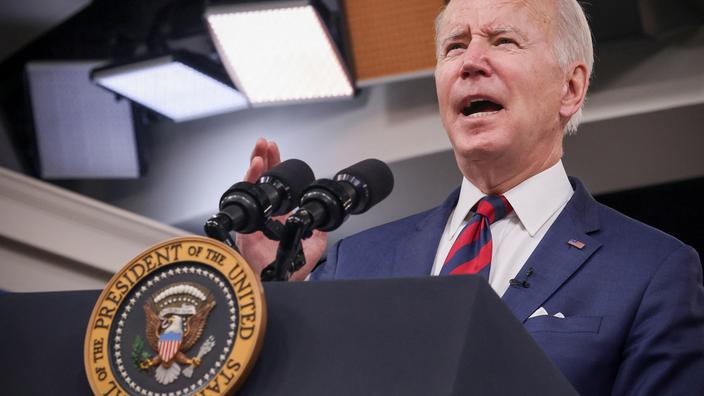Is this the end of imports of cotton and tomatoes from Xinjiang to the United States?
Joe Biden on Thursday signed a law banning the purchase of products believed to be the result of forced labor by Uyghurs in China, and the White House has already warned American companies tempted to bow to Beijing.
Read alsoUyghurs: new "Xinjiang papers" confirm Xi Jinping's role in repression
The text signed by the American president provides for the banning of products manufactured in whole or in part in this Chinese province, unless companies are able to provide proof that the products were not made with forced labor . This is a world first.
The law requires that special attention be paid to imports of three products: cotton, of which Xinjiang is one of the world's major producers; tomatoes, also mass produced in the region; and polysilicon, a material used in the production of photovoltaic panels. The law gives the government
"new tools to prevent the entry into the territory of products made with forced labor in Xinjiang and to hold accountable the people and entities behind these abuses,"
Secretary of State Antony Blinken said in a statement Thursday. press release, calling on the Chinese government to end
"genocide and crimes against humanity"
.
In rare unanimity, the Senate voted on December 16 for this text, supported by both Democrats and Republicans, supporters of an aggressive policy against Beijing. This vote came despite a lobbying campaign by American companies, some of which are very dependent on their supplies in China, and which are shaking the scarecrow of additional disruptions to world trade, already disrupted by the pandemic. This measure is
"the most important and effective taken so far to hold the Chinese Communist Party accountable for its use of forced labor
," the US president said in a statement Thursday.
During the legislative process, the Republican opposition criticized the White House for seeking to slow down the text. And Thursday, White House spokeswoman Jen Psaki was asked about the relative discretion in which Joe Biden, who makes rivalry with China the major axis of his foreign policy, signed the text. His services only released a photo of the signature on Twitter, while the same day the president signed live in front of cameras another law, intended to support research into a rare neurodegenerative disease.
“Sometimes he signs the laws without the cameras, sometimes in front of the cameras. We support this text and we have led the offensive around the world to denounce human rights violations, ”
she replied.
Imbroglio around Intel
Beijing is accused by Western countries of massively locking the Uyghurs, a predominantly Muslim and Turkic-speaking community in western China, in large labor camps. But the implementation of the law, and in general the United States' offensive against certain Chinese economic interests, could cause friction, as a controversy surrounding the American semiconductor giant Intel showed as of Thursday. In the wake of the passage of the law in the Senate, and after a flurry of US sanctions against Chinese companies, Intel had sent a letter to its suppliers asking them to avoid sourcing in the region. This sparked an outcry in China, which the chipmaker later tried to calm down with a statement posted on Weibo,the Chinese social media platform:
“Our original intention was to ensure compliance with American laws (...).
We apologize for the problems caused to our respected Chinese customers, partners and the public ”
.
"We believe that the private sector and the international community should oppose the instrumentalisation, by China, of their markets, to stifle support for human rights"
, commented Jen Psaki, questioned on this release from Intel.
"We also believe that American companies should never feel the need to apologize for having defended basic human rights or having opposed repression,"
added the spokeswoman for the US executive.














